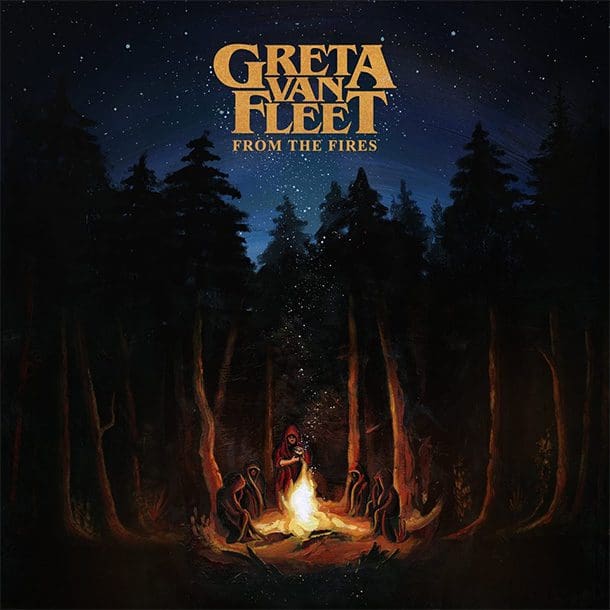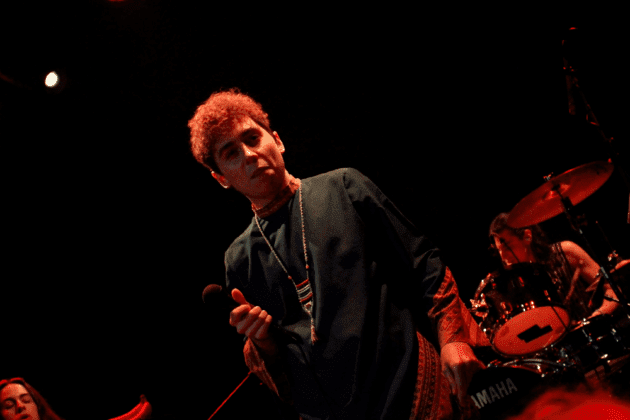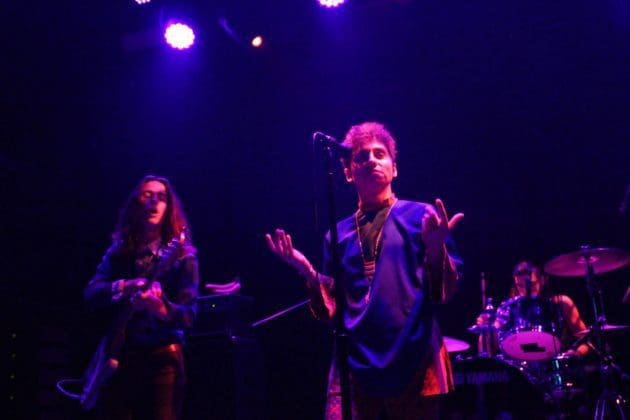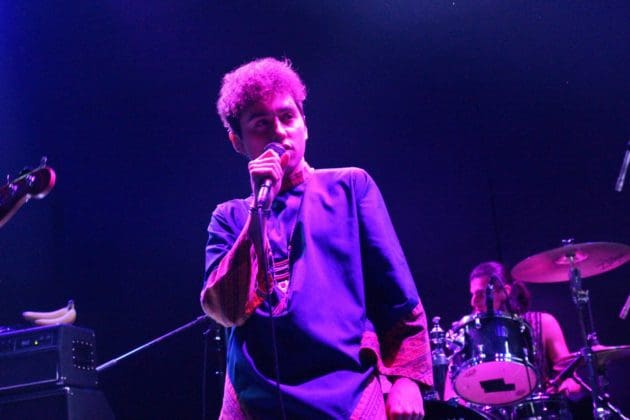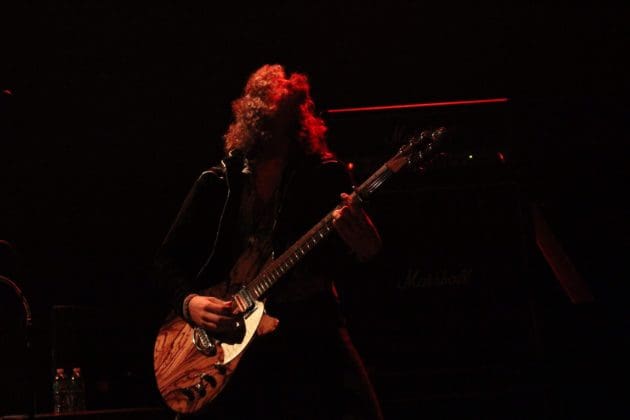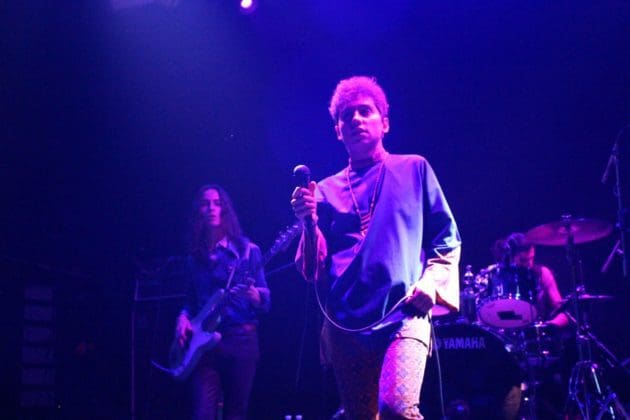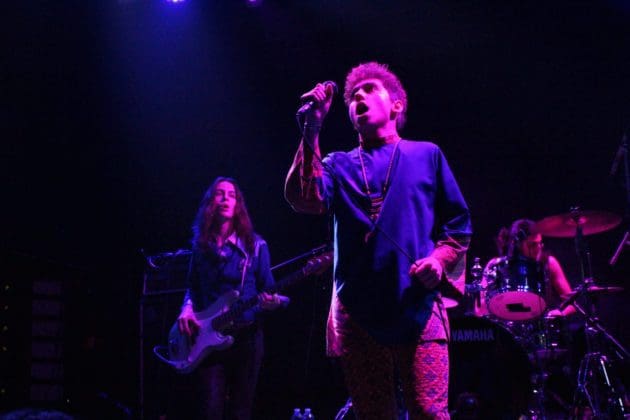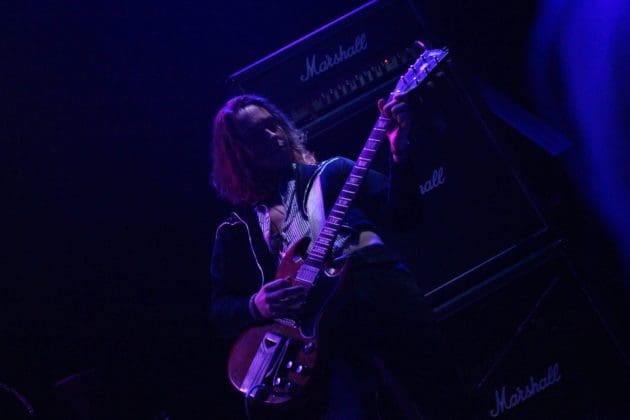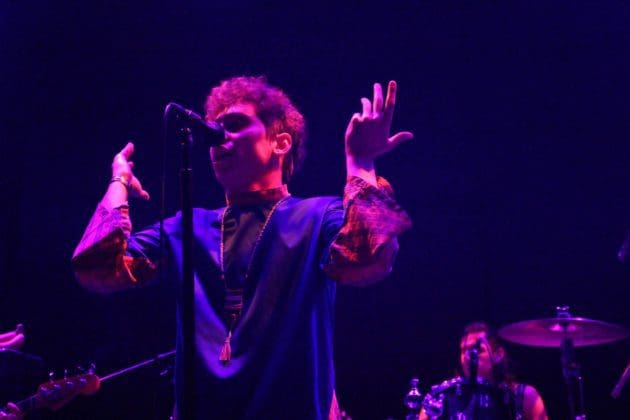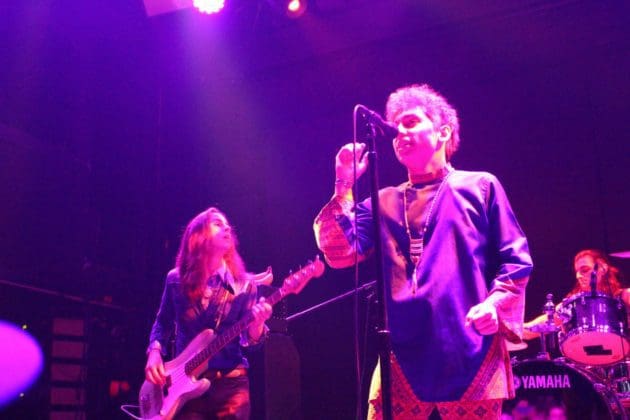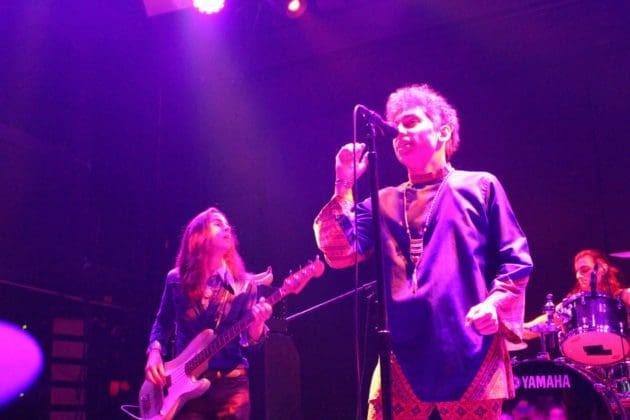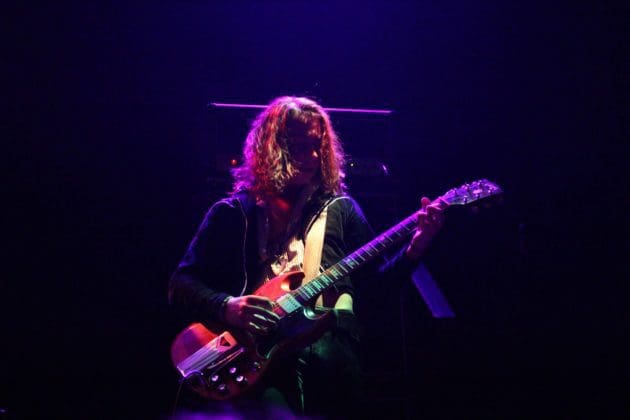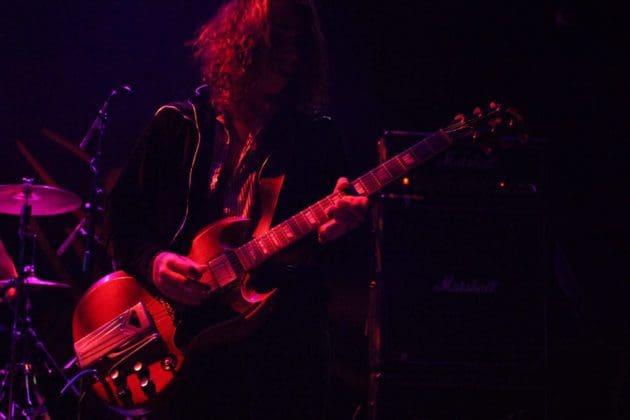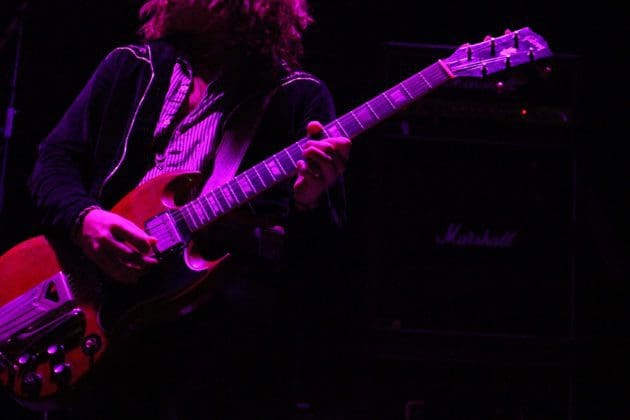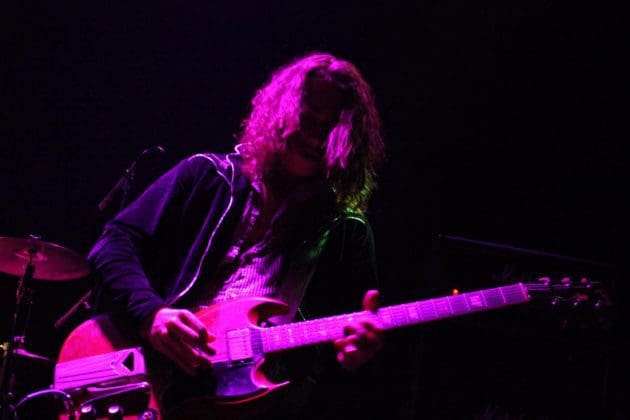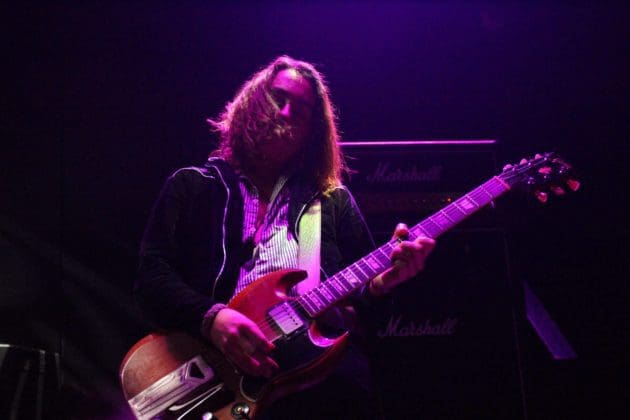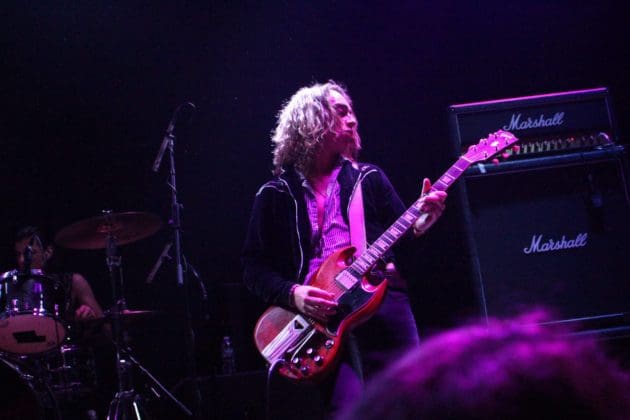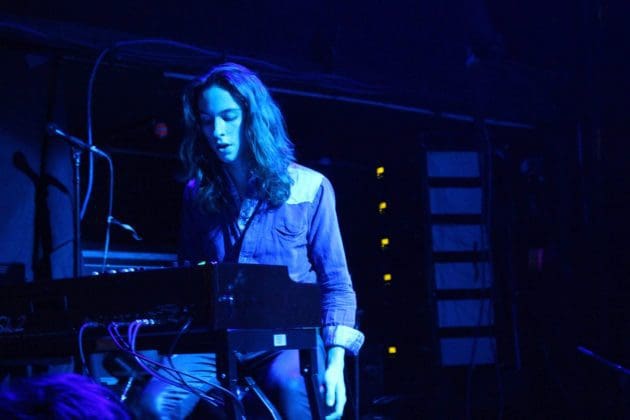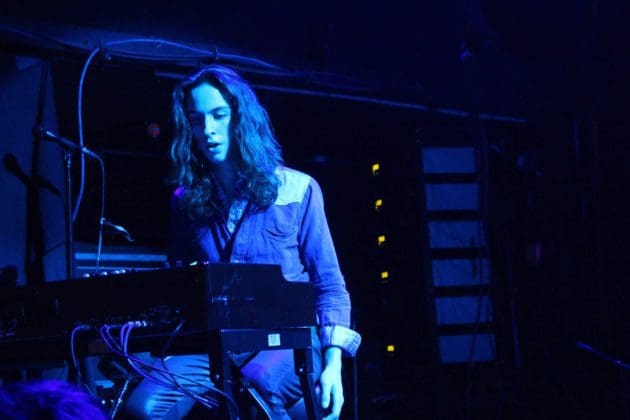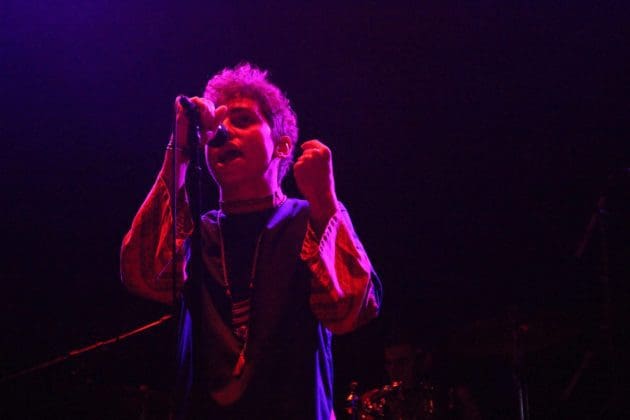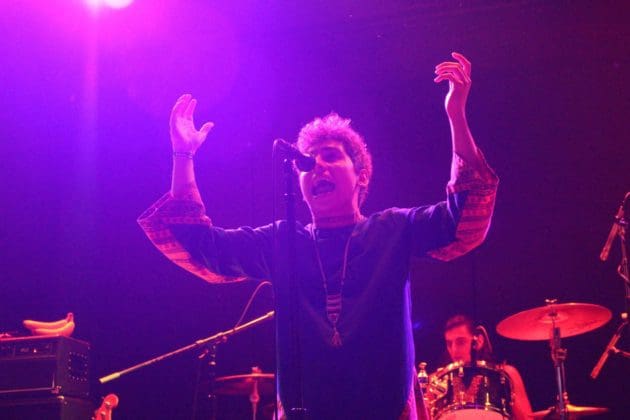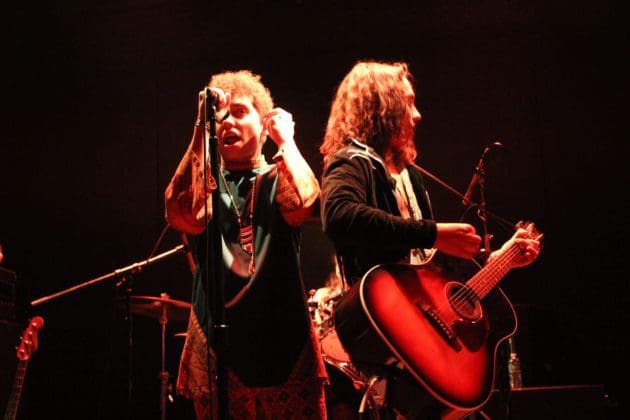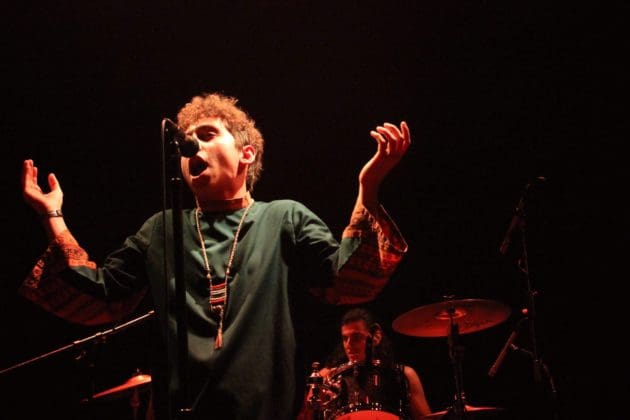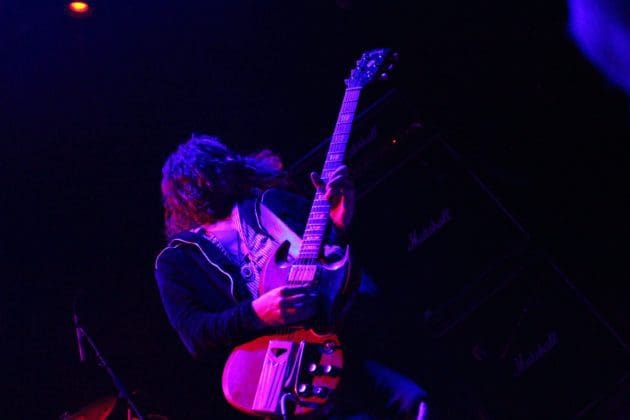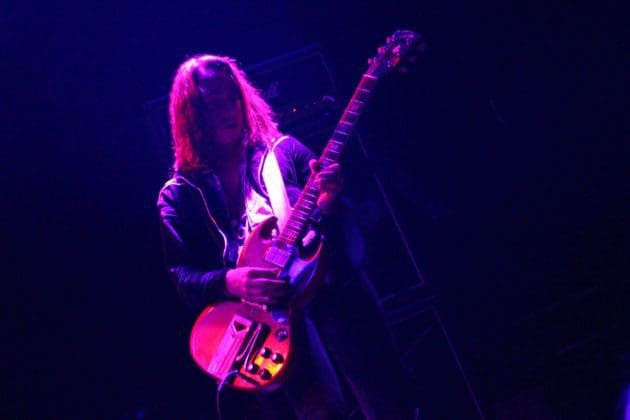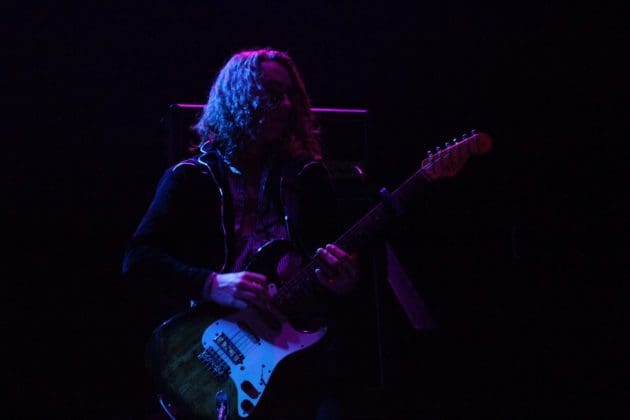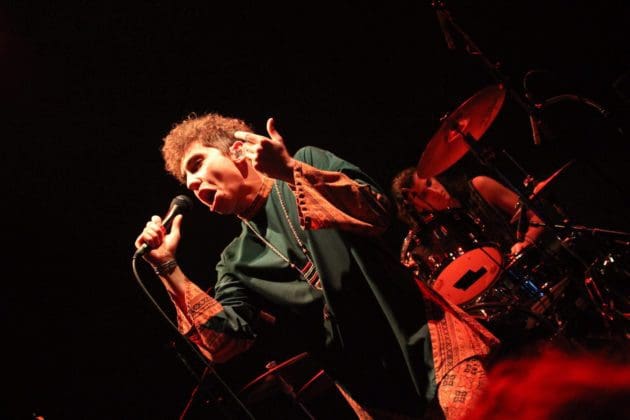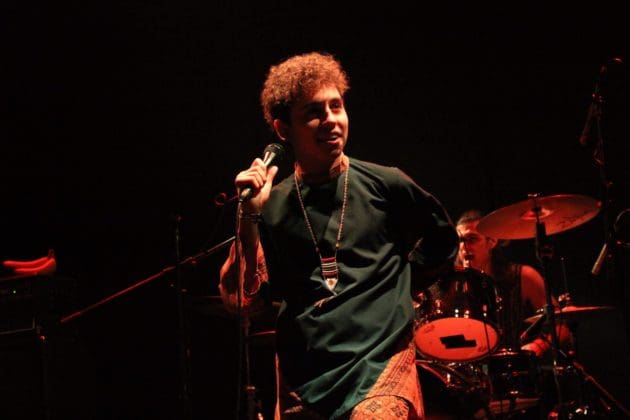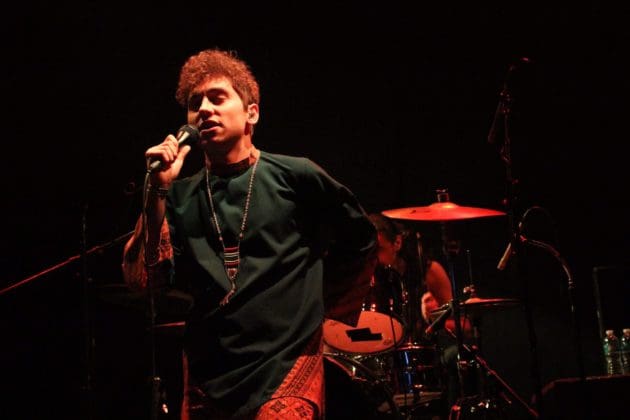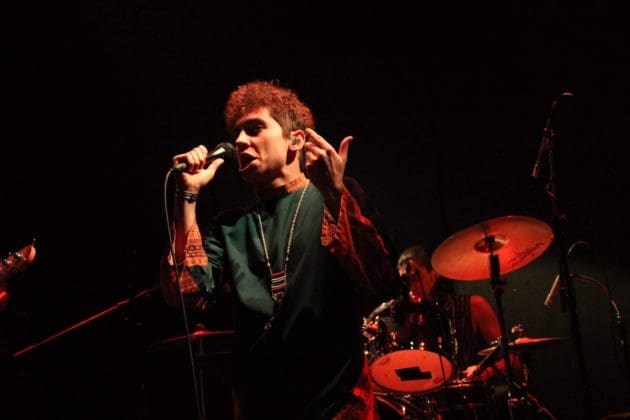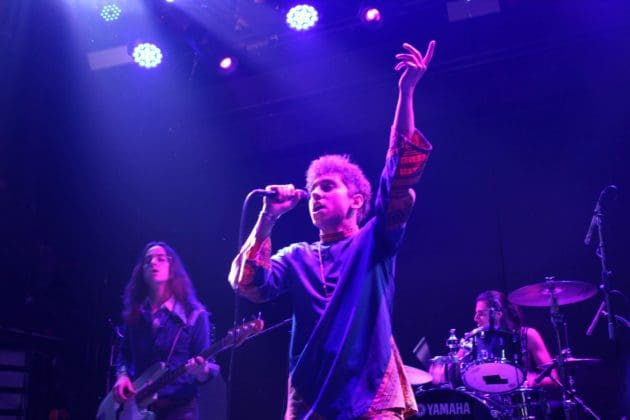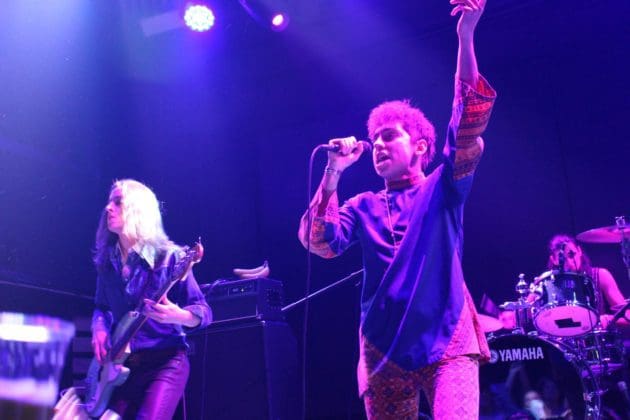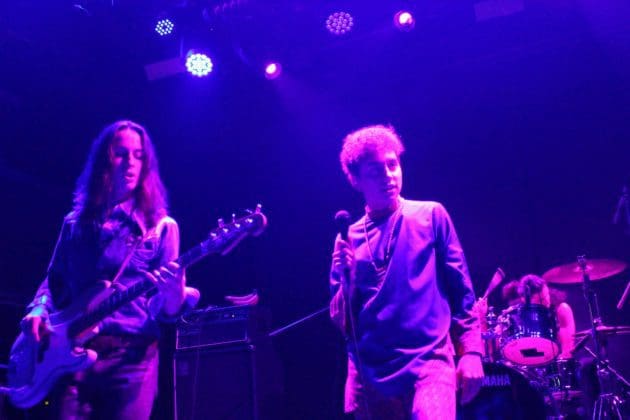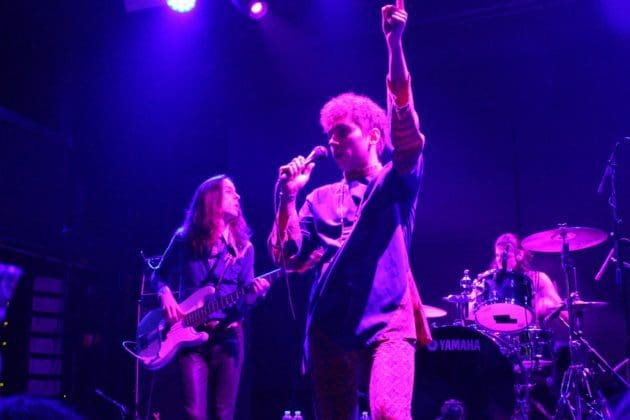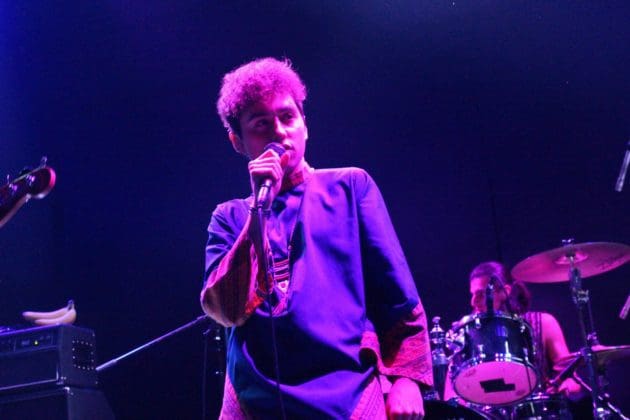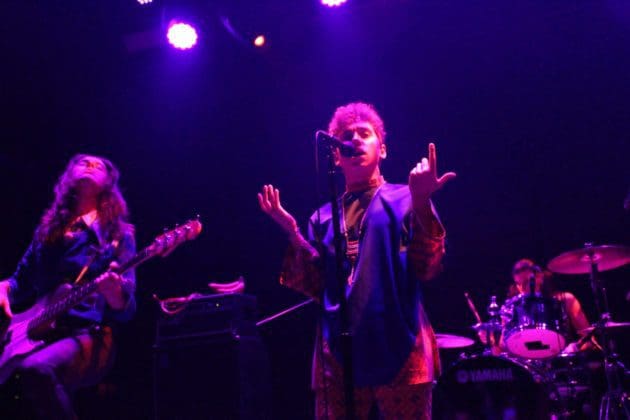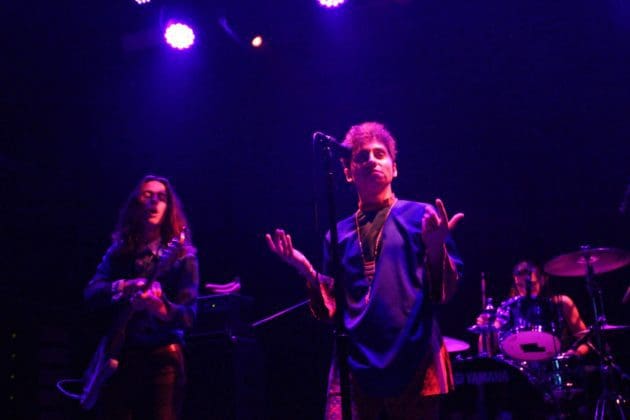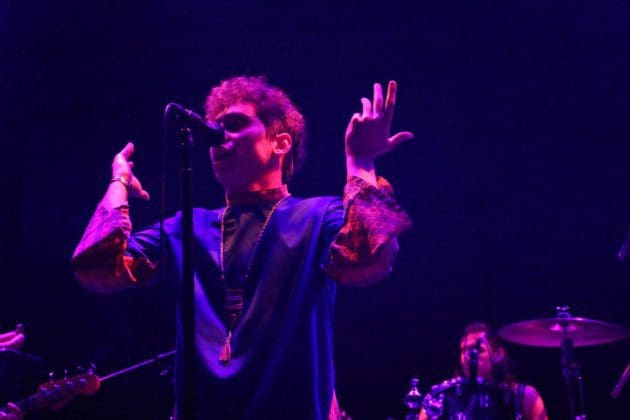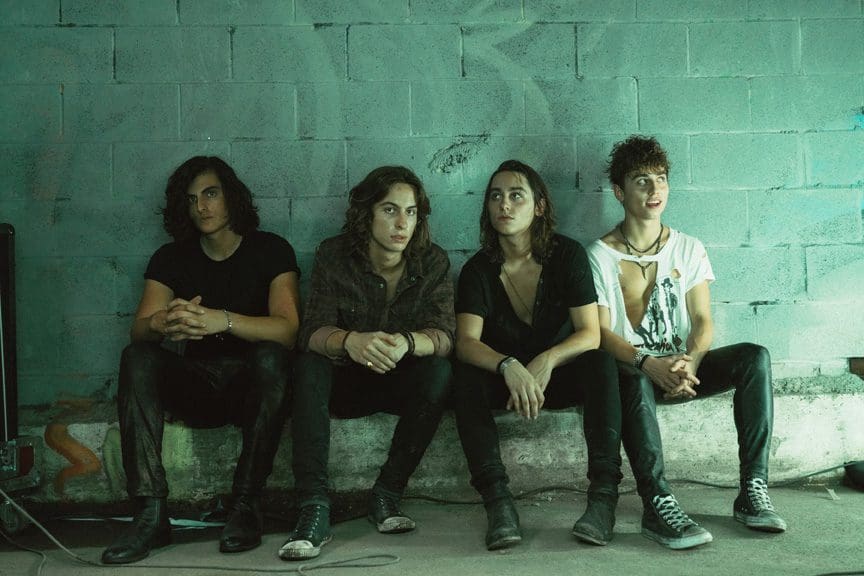
Nearly a year ago in the spring of 2017, one of the most commanding and emotionally riveting screams of this decade reignited the revolutionary aura of rock n’ roll’s most illustrious heyday and garnered an unprecedented level of excitement only seen by the likes of The Beatles and Guns N’ Roses. Atop of an infectious groove-heavy guitar riff and thunderous rhythm section, the prayers of many were answered by a transcendent four-piece powerhouse from Frankenmuth, Michigan called Greta Van Fleet on “Highway Tune.”
Throughout my life as a music listener and writer, I have never seen a band with such unlimited potential and pure unyielding cross-generational talent, especially at such a young age quite like Greta Van Fleet. The group is comprised of three brothers, two of which are twins, vocalist Josh Kiszka and guitarist Jake Kiszka, their youngest brother and bassist Sam Kiszka, and one of their childhood best friends and drummer Danny Wagner.
Back in December, I caught their performance at the Bowery Ballroom and found myself in complete awe as they effortlessly merged the blues-inspired emotional validity of Robert Johnson’s Crossroads with the blissful melodic essence of Michigan’s very own Motown. Greta Van Fleet are truly old souls at heart, which has reminded so many listeners, both young and old, of the jubilant freedom and spirit this genre once possessed and has lost in recent years. Trust me, this four-piece has only started to scratch the surface of their potential and their maturity as performers, songwriters, and musicians will see them succeed in any genre or style of their choosing.
With two critically acclaimed EP’s to their name, Greta Van Fleet recently entered the studio with their longtime producer Al Sutton to commence work on their highly-anticipated full-length debut, which will be released sometime later this year.
In an exclusive interview with The Pop Break, I sat down with Greta Van Fleet bassist Sam Kiszka and we discussed the band’s upbringing and ascension in popularity, his approach to songwriting and instrumentation, and his goals moving forward in pushing the band’s sound into newfound territory on their upcoming LP.
It’s nice to meet you. I appreciate you filling in for Jake and taking the time to speak with me.
Oh, thank you. People always mistake us anyway.
Yeah, you guys do look a lot alike.
We’re not twins though, which is the funny thing. I’m three years younger and much taller (Laughs) but I think it’s the hair. We both have long hair that just hangs down.
I would say you resemble Jake more so than Josh.
A lot of people do say that. Once you actually see them stand next to each other and do this (lifts up his hair) and you look closer, you’ll be like, “Oh, yeah!” You couldn’t distinguish the difference between the two of them until they were probably six or seven-years old. They would flip flop classes and everything and do the classic twin thing (Laughs).
So if one brother was better at math and the other was better at English, they would switch classes pretty much?
Yeah, except neither of them are good at math (Laughs).
(Laughs) Even as musicians and knowing about time signatures?
They’re not good at that either (Laughs).
(Laughs) Would you say that you are the most well-rounded in that respect because of how many instruments you can play?
Probably either Daniel or myself. I learned about time signatures and all of that kind of stuff for the first time in fifth-grade when I was in the middle school band. It is very interesting stuff. When you get down to it though, you don’t really need to know it. So many of the best musicians can’t even read music so you know, it has its niche.
You have been playing the bass for about four-years now?
I think so, probably about four-years now because I think I started when I was 13 so yeah, I would say about four or five-years.
What about the bass attracted you most to that sound?
Honestly, I’m kind of a tone guy as well. When I hear a great bass tone, it makes my whiskers crawl. I will hear it and go, “Oh yeah, that’s a good one (Laughs).” It is really exciting for me but probably lame for other people (Laughs). I guess what I loved most about the bass, it’s the way it can make people move. If you hear a great bass or drum track and it’s funky, you will go, “Oh, yeah!” I guess I started noticing the bass through Motown music. I was listening to a lot of Motown music and we are really close to Detroit and I think Motown is very much a part of the culture. My earliest experiences with the bass were listening to and hearing what not a lot of people would listen to. And listening to how the instrument makes the track move, which is what really interested me the most.
Which bass players were your biggest influence?
I would say my biggest influence of all-time is James Jamerson. I was listening to all of these Motown recordings and all of these Temptations songs and Marvin Gaye songs and I started figuring out that, “Oh, James Jamerson played on “I Heard It Through A Grapevine,” and, “Oh, James Jamerson also played on “Ain’t No Mountain High Enough.” I kept noticing that he played on all of these incredible songs. He was so inspiring and important to me and is very highly uncredited and underrated in my opinion. There’s guys who taught me how to play a lot of the rock kind of stuff too, the rock fills and all of that.
Guys like Jack Bruce and John Entwistle, musicians who took the bass and threw the conventional approach out the window. They approached the bass so differently instead of just playing to the chord structure, which is lame even though sometimes you need it. I get bored too easily playing that kind of stuff so those guys were a big influence on me.
Beyond the classic rock element, I could definitely hear the Motown influence and the blues influence in your sound, like as far back as the 1920s.
Oh yeah, totally! Thank you! I really do appreciate that. We really grew up listening to all of that kind of stuff. We listened to Robert Johnson, Albert King, and really of all of the King’s: Freddie King and B.B. King. Taj Mahal was a really big one. You know, lots of blues, soul, and funk; guys like Sam and Dave and Joe Cocker and a bunch of really great stuff growing up. I think it is instilled in us and I really think that’s how our sound comes together when we’re all playing.
You guys have been able to crossover in both the traditional FM radio format and the Spotify digital environment. Your music has attracted such a wide range of listeners from both the old guard and new guard, which is a really unique combination.
It is really interesting and we have a unique ability and opportunity to bring people together that would never hang out in the same room for the same thing. It is so interesting to look out at the audience and see people anywhere from eight-years old with their parents and even their grandparents all at the same show, which is really spectacular.
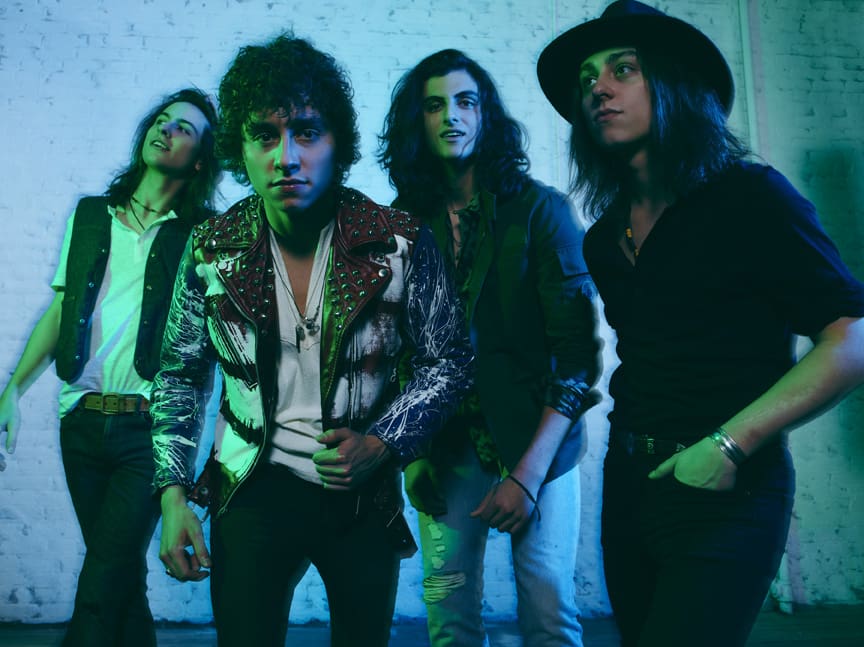
The inspiration behind your latest EP From The Fires, it draws influence from trips that your family took each summer. How did the band go about translating the emotions of those memories into your songwriting?
The second EP came around because we felt like Black Smoke Rising EP wasn’t complete. I think Black Smoke Rising is a great EP but from an artist’s standpoint, we felt it was a little insular, one-tracked, and one angle of what Greta Van Fleet could do. We felt like we needed to dig deep into our influences like if we were all sitting around the campfire, what would we play? It was really interesting to go in and pull out what our deepest influences were on a song like “A Change Is Gonna Come.” Something people wouldn’t expect. “Meet On The Ledge,” I think there are a lot of different folk influences and dimensions that people wouldn’t expect from us that we put our own twist on.
Your producers Al Sutton and Marlon Young, both are Michigan guys who have worked with notable Michigan musicians. How did that collaboration come about?
I think Al really raised us from very young musicians, especially in terms of recording in the studio. When we stepped into the studio at Rust Belt, we really didn’t have a great idea of what recording a song really meant. We had recording experience before that but it was more so of an assembly line. We came in and put drums down, bass down, guitars, and vocals and messed around with it a little bit.
When we went into Rust Belt, we were surprised by how much we actually didn’t know. We spent a while, probably about two-years perfecting what we do in the studio. It wasn’t for another two-and-a-half years before we released Black Smoke Rising. And actually, “Black Smoke Rising” was written when we were working on other songs like “Safari Song,” “Highway Tune,” and “Flower Power.” It kind of took over the project and became the title-track. It was an interesting dynamic. Al really raised us and taught us how to capture and make a great recording.
Which of Al’s suggestions had the biggest influence and has stuck with you the most over the years?
Al is a really great producer because he isn’t going to lie to you. He is going to tell you the truth and tell you exactly how it is. That’s the best thing you can have. You don’t want a “Yes!” guy behind the board who is just going to say, “Oh, that was great!” Al is Al. I think we learned a lot from him just from being point blank like, “That is a shitty part.” Okay, let’s rethink this part and take it in a different direction. I think we learned a lot from him being hands on with it. We also learned that sometimes going all out is less effective, actually a lot of the time, and there are a lot of intricacies that Al instilled in us.
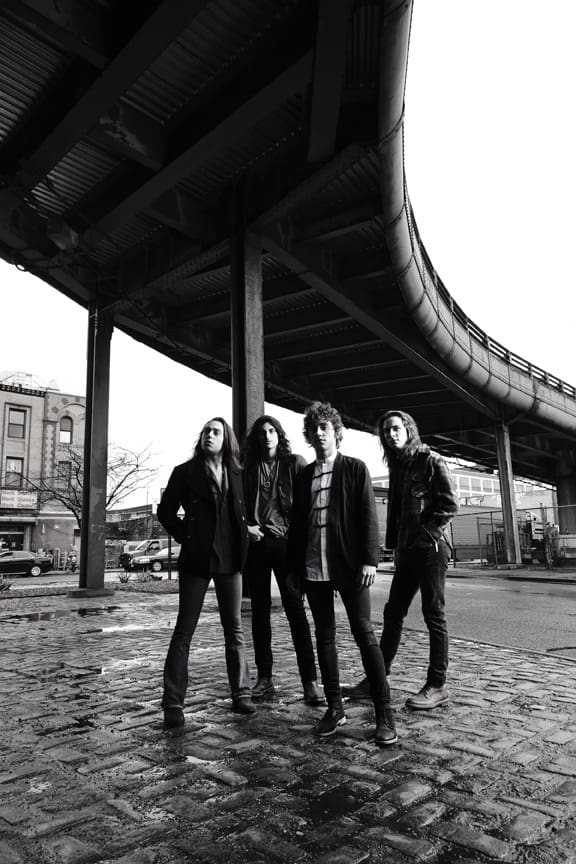
Pacing.
Precisely.
How would you describe your approach to songwriting and conceptualizing your bass parts? We had spoken about your Motown influence.
When I assess a song, I really try to serve the song. What should I sound like? I usually have a pretty clear vision of what I’m striving for. For most of the studio recordings, I actually recorded with a Motown DI. Al has a company and he makes a lot of great stuff and it’s all boutique stuff based off all of the old circuits that the Motown pre-amps originally went through. It was really incredible equipment that I was working with and really inspirational to be able to achieve that type of tone. I was like, “Wow, this is really incredible.”
What setup do you use on the road? Do you use the same setup in the studio?
Actually, no, it’s not. It could vary a lot depending on how I’m feeling before or after a show. What I always have is an Ampeg 8×8 cabinet and 300-watt Super Bassman Amp Pro, which I think is hilarious because it’s such a long name (laughs). That is such a great amp! I think it is one of the greatest modern amps that we have out there. Sometimes I have an acoustic 360 preamp, which I think is from 1968 and it sounds great so sometimes I’ll hook that up before the amp.
I will sometimes take a mini version of the Motown DI with me. I’ll sometimes use that. I have an ‘80s reissue of a ‘50s P-Bass in Seafome Green that I put my Jazz bass neck on because I can’t play with a P-Bass neck, it’s too fat and I need to be able to put my thumb on the top (of the neck) a lot of the time because that’s just how I play. I really love the jazz neck and I also have a Jazz Bass, a brand new American Pro series Jazz bass that I will play for a few songs.
Will you be working with Al and Marlon again on your upcoming debut?
Yes, the next record will be helmed by Al and Marlon.
Going from the success of your two EP’s and having garnered some solid touring experience, what excites you the most about entering the studio with this added momentum?
What excites me the most, I would say looking at this record as an opportunity to really showcase everything that the band could do. I think there are a lot of things that we haven’t incorporated yet. I believe all of the stuff that we have put out is great and I really believe in it. I think there is a lot of stuff that I still want to get out there that people haven’t heard. I’m thinking with this album, it won’t depart or be too much of a departure from the perception of what our sound is. It will definitely incorporate a third dimension and a few different elements.
“Edge of Darkness,” possesses this sentimental aura, especially when Josh sings, “All my brothers we stand/ For the peace of the land/ Is there meaning?” As brothers, what do those lyrics mean to you personally and how did the song come together?
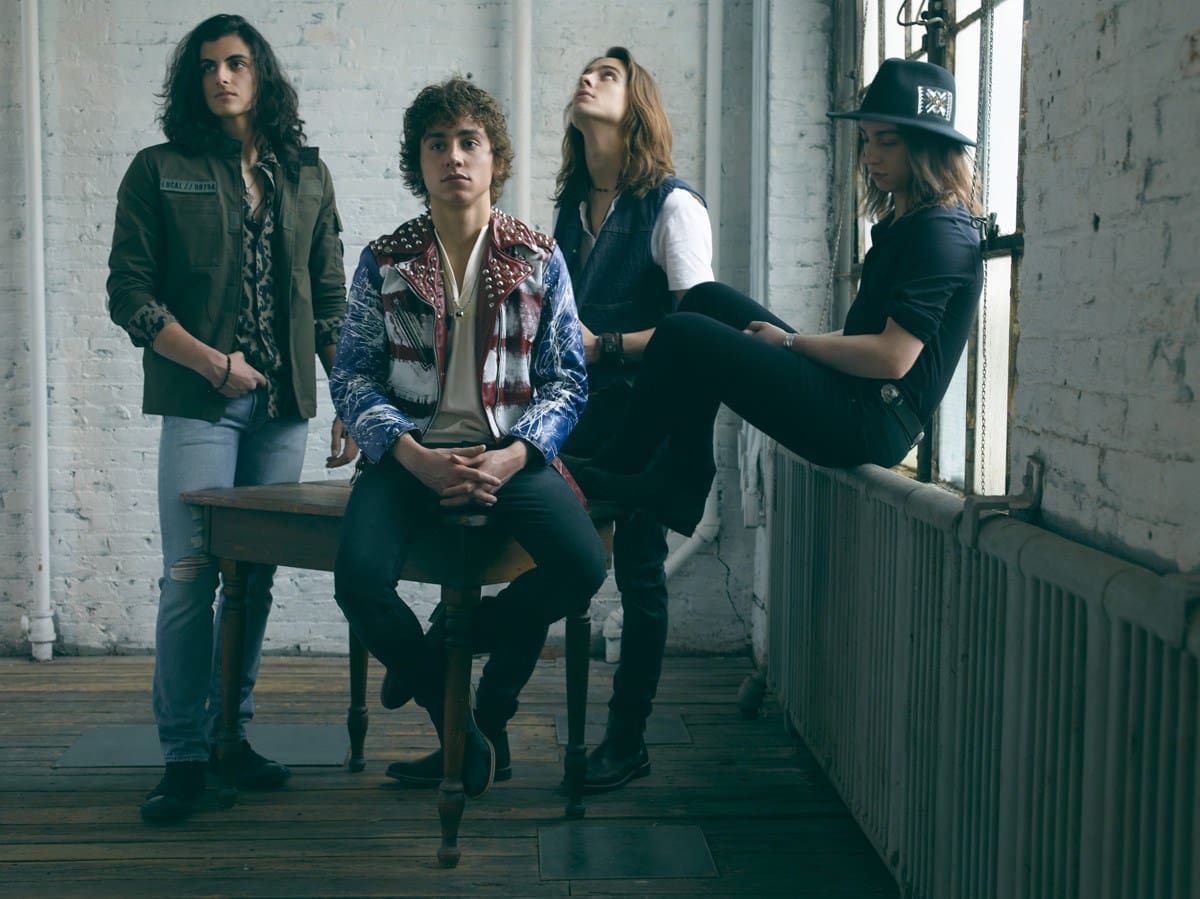
I think the word “brothers” in that song is really about humanity as a whole. Josh would tell you to interpret the lyrics for yourself. But how I think about it, “All my brothers we stand/ For the peace of the land,” it’s kind of a hopeful thing, an archetypal thing. Someday we will be able to achieve this idea and understand this world. A lot of our songs have archetypes, that’s how they’re written most of the time. I don’t think he writes lyrics until we have the attitude of the song figured out. I think it’s a very heavy song meaning wise.
I think it’s a solid display of both Danny and yourself as a rhythm section.
Oh, yeah. I think the first EP was definitely simplified. If you listen to “Highway Tune,” there is not a whole lot to be said about that for the rhythm section. That was our first song out of the gates and really encapsulated what we do on a very basic, understandable, and relatable level. When that shot to number one, we were like, “Whoa! What?” It took us all by surprise. It’s a hard hitting fast track. It doesn’t spend a whole lot of time screwing around. I’m really happy with the new EP altogether because we did get a lot of chances to show off a little bit more with our instrumentation and the melodies that we could incorporate in our playing. I think seeing us live is the best way to do that.
“A Change Is Gonna Come,” are you playing keys on that track?
Yeah, especially on “A Change Is Gonna Come” and “Meet on the Ledge.” I had a lot of fun with the milatorn and keyboards, which kind of does make it a lot harder to play it live. We are still able to play “Flower Power” live, it’s a little more simple but yeah, it was a lot of fun. The Hammond B-3 is my favorite instrument of all-time and I’m really happy that I was able to play more keys on this EP.
What ignited your train of thought to incorporate more keys and the Hammond B-3 into the band’s material?
I think the intention of expanding the EP into a double EP was to showcase the different dynamics of what we could do. I think the keys are an important part of our soundscape and I think they are a very important instrument in history. The first very instruments, the piano and eventually the keyboards, it’s primitive but a very incredible thing to have music laid out right in front of your face. It’s way too much fun.
“Talk on the Street,” really hones this uplifting late ‘60s vintage rock sound. I think of Janis Joplin, it’s in that alley. Is that a style the band wants to build on?
“Talk on the Street” really came together with the riff and we threw a rhythm pattern around it. We wanted to make it a little bit weirder. There are some cool drum beats in there and places where the bass drops out. The very first intro, we used to just do at the top of every verse but then we thought, “That’s boring, that’s exactly what you think people would expect to hear each time around.” So we threw some strange drum stuff in there, which I think really works well. With the lyrics of that song, I think it’s our first kind of escapade into people saying things about us, unfounded. We could really care less but it’s more of an observation. People always talk and make assumptions no matter whether they know you or don’t know you. It’s gossip. Whether it’s about us or anybody else, it says, “Everybody’s talking.” It’s an interesting human characteristic.
In terms of people talking and generating conversation, obviously, there has been so much excitement and praise around “Highway Tune.” When you first heard Jake play the intro riff, what went through your mind as that song came together? Did you feel something special as you started to piece the song together?
What’s interesting about “Highway Tune” is that is the very first song that we ever wrote as a band. There was this kind of magical energy that was going through the air when Jake started playing his riff (hums the intro). I was like, “Wow! That is a really cool riff and very rock n’ roll.” It was very easy to jump right in and put the rhythm section on it. I think the first time we ever played through it, Josh got the melody down and put his lyrics down. It is a very basic track but it has this rock n’ roll energy that is very unrelenting.
How did you react when you first heard Josh come in with that initial scream? Atop of the instrumental section, that scream really opens your eyes.
It really does (Laughs.) It’s a waker upper for sure. I think we just started playing it and he just came in. It was like, “Holy shit! I think we really got something here.” It was one of those first moments where it felt like, “Wow, this is like a real band!” It was pretty incredible and I think it was about five-years ago. It was really awesome.
So you wrote the song about five years ago and recorded it within the last two years or so?
I would say so, within the last two years.
How about “Safari Song?”
That was actually in the same vein and even in the same well that we tapped into for “Highway Tune.” I feel like a lot of our songs come together in pairs. “Highway Tune” and “Safari Song” came in pairs. “Flower Power” and a song called “You’re The One” came about in pairs and we haven’t released that yet. “Talk on the Street” and “Edge of Darkness” sort of came in pairs. “Safari Song” came about, I think, four or five-years ago.
The inspiration behind it kind of came from a Howlin’ Wolf deep cut, like a studio outtake or something like that. He said something like, “Give me a jungle beat.” It was this funky beat that very much personified the jungle and we thought that was really cool. When we first wrote the song, there was a lot of percussion and it was based off a kind of safari adventure. We paid a lot of homage to the blues side of our sound, where our roots come from.
How many songs are you planning on releasing with your debut?
It could be anywhere from eight to ten, maybe even twelve.
Will the album be entirely composed of new material?
Yeah, it’s going to be all new material. We have a lot of stuff stored away that we’re looking forward to working on. We have finished songs and demos and little ideas. It’s going to be pretty cool to have the opportunity to dive through all of those things and arrange an album and do it right.
I know you guys are sitting on about twenty-five or so recorded songs. Will the album also contain some of the previously finished material and more contemporary ideas and demos.
Yeah, I would say so. There are some contemporary and newly written stuff and there’s also some stuff that we have been holding onto for a long-time. It’s going to be a good mix of what we’ve written and what we are going to write. I think there’s going to be a lot of cool dynamics and it will be a really cool piece of music.
When are you hoping to release the record?
We’re going to be in the studio throughout the beginning of this year and I think we’re really hoping to release it sometime in the spring. But I think we are going to take our time on it and make sure we do it right.
Before we go, I know your parents have a massive vinyl collection, which was a significant influence on your sound. How a big of a collection do they have? I have heard the term “vinyl playground” referenced multiple times in your upbringing.
It was pretty ridiculous, it was definitely in the realm, I would say it was probably almost 500 records. The stuff that they both accumulated from their own collection and from my dad’s sisters or mom’s brothers, it all came to this one spot, our house. We definitely wore out those records and we wore out the record player for sure (Laughs). It was so cool, especially for young children. It is a physical piece of music, we get to see it and it’s a piece of art, we get to take it out and it’s this giant disc. It looks so cool and it looks like it’s from outer space. We put it on this record player and get to see it turn. It was very fascinating to us at such a young age.
Greta Van Fleet begins their nationwide tour this month catch them on the road at…
Greta Van Fleet 2018 Tour Dates:
03/20 – Nijmegen, NL @ Doornroosje
03/21 – Amsterdam, NL @ Melkweg
03/22 – Cologne, DE @ Burgerhaus
03/24 – Hamburg, DE @ Markthalle
03/25 – Berlin, DE @ Kesselhaus
03/27 – Brussels, BE @ AB Club
03/28 – Paris, FR @ Les Etoiles
03/30 – Manchester, UK @ Academy 3
03/31 – Birmingham, UK @ O2 Institute 2
04/01 – Glasgow, UK @ Saint Luke’s
04/04 – London, UK @ O2 Academy
04/05 – London, UK @ O2 Academy
04/13 – Indio, CA @ Coachella Music Festival
04/20 – Indio, CA @ Coachella Music Festival
04/29 – Jacksonville, FL @ Welcome to Rockville
05/01 – Houston, TX @ House of Blues
05/02 – Dallas, TX @ House of Blues
05/03 – Austin, TX @ Stubb’s
05/05 – Atlanta, GA @ Shaky Knees Festival
05/06 – Concord, NC @ Carolina Rebellion
05/09 – Baltimore, MD @ Rams Head Live
05/11 – Sayreville, NJ @ Starland Ballroom
05/12 – Philadelphia, PA @ Electric Factory
05/14 – Nashville, TN @ Marathon Music Works
05/16 – Nashville, TN @ Marathon Music Works
05/18 – Columbus, OH @ Rock on the Range Music Festival
05/20 – Gulf Shores, AL @ Hangout Music Festival
05/22 – Detroit, MI @ The Fillmore
05/23 – Detroit, MI @ The Fillmore
05/25 – Detroit, MI @ The Fillmore
06/01-03 – Mendig, DE @ Rock am Ring Festival
06/01-03 – Nuremberg, DE @ Rock im Park Festival
06/18 – Paris, FR @ Download Festival Paris

